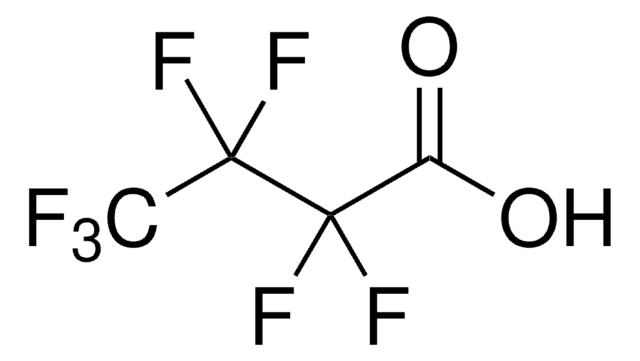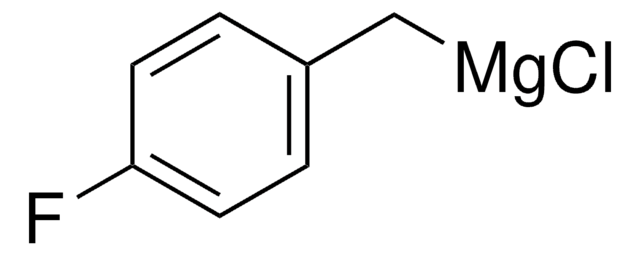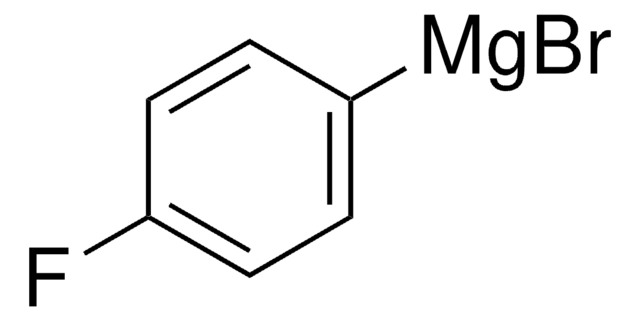563927
4-Fluorobenzylmagnesium chloride
0.25 M in THF
Synonym(s):
p-Fluorobenzylmagnesium chloride, p-Fluorophenylmethylmagnesium chloride, Chloro(p-fluorobenzyl)magnesium
Select a Size
Select a Size
About This Item
Recommended Products
reaction suitability
reaction type: Grignard Reaction
Quality Level
concentration
0.25 M in THF
bp
65 °C (lit.)
density
0.910 g/mL at 25 °C (lit.)
functional group
fluoro
storage temp.
2-8°C
SMILES string
Fc1ccc(C[Mg]Cl)cc1
InChI
1S/C7H6F.ClH.Mg/c1-6-2-4-7(8)5-3-6;;/h2-5H,1H2;1H;/q;;+1/p-1
InChI key
PQDGQUPDDGUKLP-UHFFFAOYSA-M
Related Categories
1 of 4
This Item | 328820 | 419532 | 225916 |
|---|---|---|---|
| reaction suitability reaction type: Grignard Reaction | reaction suitability reaction type: Grignard Reaction | reaction suitability reaction type: Grignard Reaction | reaction suitability reaction type: Grignard Reaction |
| concentration 0.25 M in THF | concentration 1.0 M in THF | concentration 0.5 M in THF | concentration 2.0 M in THF |
| Quality Level 100 | Quality Level 100 | Quality Level 100 | Quality Level 100 |
| density 0.910 g/mL at 25 °C (lit.) | density 1.021 g/mL at 25 °C | density 0.915 g/mL at 25 °C | density 1.031 g/mL at 25 °C |
| storage temp. 2-8°C | storage temp. - | storage temp. - | storage temp. - |
| bp 65 °C (lit.) | bp - | bp 65-67 °C | bp - |
Legal Information
Rieke is a registered trademark of Rieke Metals, Inc.
Signal Word
Danger
Hazard Statements
Precautionary Statements
Hazard Classifications
Acute Tox. 4 Oral - Carc. 2 - Flam. Liq. 2 - Skin Corr. 1B - STOT SE 3
Target Organs
Respiratory system
Supplementary Hazards
Storage Class Code
3 - Flammable liquids
WGK
WGK 3
Flash Point(F)
<1.4 °F - closed cup
Flash Point(C)
< -17 °C - closed cup
Personal Protective Equipment
Choose from one of the most recent versions:
Already Own This Product?
Find documentation for the products that you have recently purchased in the Document Library.
Customers Also Viewed
Our team of scientists has experience in all areas of research including Life Science, Material Science, Chemical Synthesis, Chromatography, Analytical and many others.
Contact Technical Service


















